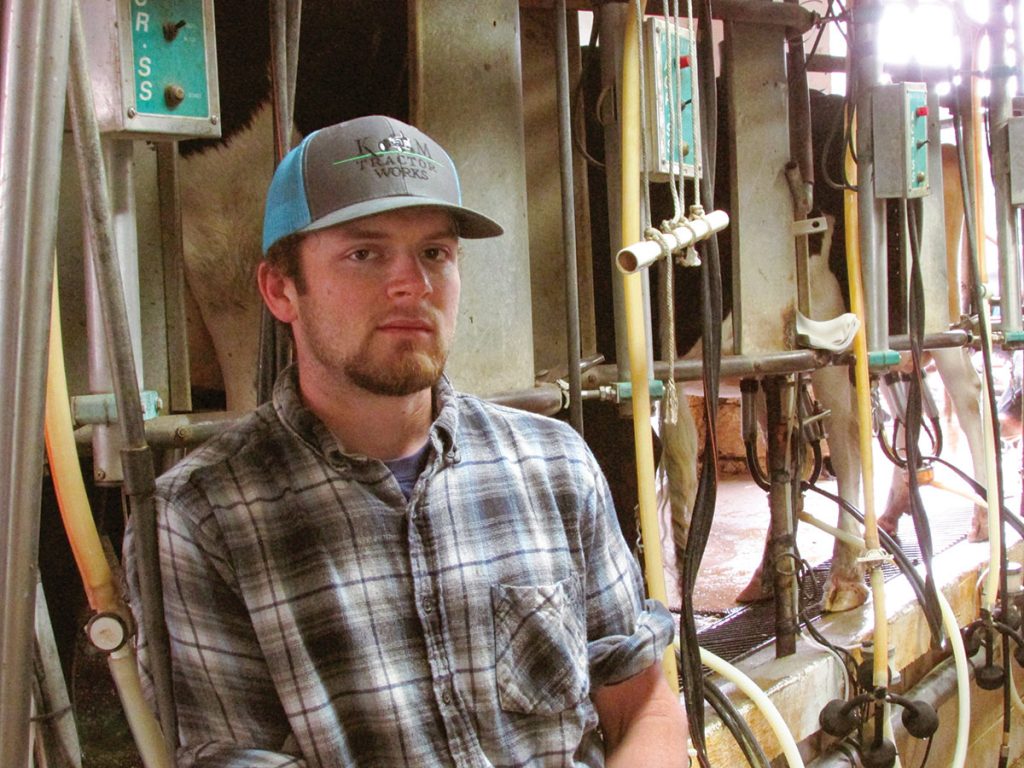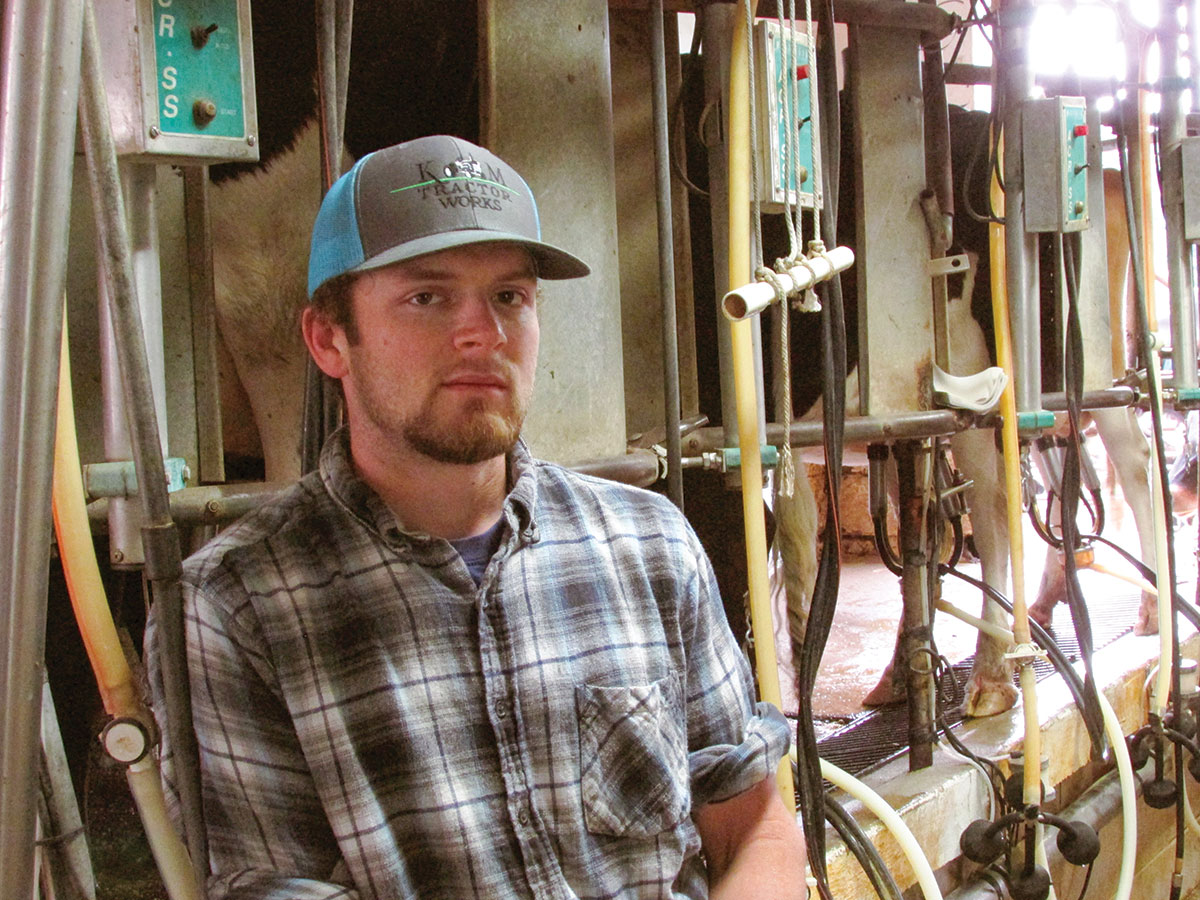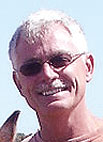
Fourth-generation dairy farmer, Jared Wormington, of rural Purdy, Mo., said he’d never milk cows of his own when he grew up.
“I’ve milked since I was old enough to push a 5-gallon bucket around to stand on,” Jared said. “By the time I was a teenager, I was sick of it. I told myself I wasn’t going to follow in my dad’s footsteps and get locked into the same cycle when I got older.
“I did try some other things when I got out of high school, but when my wife Karla and I began dating, then thinking about marriage, I knew I’d need a stable income to support a family. That’s when dairy farming started looking better to me. It’s what I knew how to do.”
Jared is now 28 years old and running is own herd.
“I started out 10 years ago by buying 20 cows and milking them at my dad’s place,” Jarad explained. “Then, I leased 100 acres from my grandma. As soon as Karla and I got back from our honeymoon, I moved the cows up the road to that pasture and started milking in the barn my grandpa used.”
In Barry County, which 30 years ago had about twice as many dairy farms as it now has, milking can be a daunting business, but Jared hasn’t looked back. He now has two sons of his own. The oldest, 3-year-old Emery, is already going to the milk barn with his dad.
Jared milks 80 cows, a mix of Brown Swiss, Jersey and Holstein, that produce an average of 35 pounds of milk a day. Quite a bit more than that in the spring, Jared said.
He culls and buys replacement cows in the spring or fall, if necessary, to keep his milk production consistent.
“Consistency is important with the cows’ diets, too,” he said. “They’re mostly grass-fed, but I give them grain in the mornings and evenings before each milking. I change the mix of grains up a little, depending on the season. In the spring, when the grass is green, I give them soy hull feed for its higher fiber content. When the grass dries up towards fall, I’ll up the protein content with some cotton-seed meal.”
A balanced corn blend in pellet form, formulated for dairy cattle, is a staple year-round for Jared’s herd.
“Not only is it good for them, it makes it easier to get them to the barn, too,” he admitted.
During good years, there’s plenty of hay to feed them in the winter, cut from his fertile pastures in a valley that stretches for miles between Ozark hills.
Jared uses an AI program in the spring and fall for breeding purposes.
“Afterward, I turn my Hereford bull in with them to make sure they’re all bred,” he said. “Yes, he’s a beef bull, but I have a weakness for that white Hereford face. Plus, calves bred from a beef bull are easier to sell at market. Not too many people at McDonald’s are asking for a Holstein burger.”
Although Jared expresses a preference for white-faced cattle, his sentiment goes only so far.
“In this business, I can’t afford to be sentimental,” he said. “If a cow doesn’t produce her quota of milk, she gets culled.
He gave himself away, though, when he pointed out Goldie, the first cow his dad gave him when he started his own herd 10 years ago.
“She was a newborn, then,” Jared said.
During the recent bottleneck at milk processing plants due to COVID-19, Jared said he’s never run into a problem on his farm.
“I’ve never had to dump any milk here,” he said.
It may be because he sells his milk to Springfield-based Central Equity Milk Cooperative, which has flexible market options not always available to larger co-ops.
Jared is philosophical about the current state of the economy.
“I don’t pay much attention to the national news,” he said. “I focus on the job in front of me. We’ve had some hard times, but God’s always made a way through them. Some circumstances are out of my control, so I focus on what I can control: the quality of my milk.
“Too, the farm’s a good place to raise kids.” “Even though dairy farming can be challenging, I know we’ll always have beef to eat and milk to drink.”
Jared does have one bit of advice for young men considering a career in dairy-farming, though.
“Marry a rich woman,” he said. “It’ll help. But even without a rich wife, the farm’s a good place to raise kids.”







